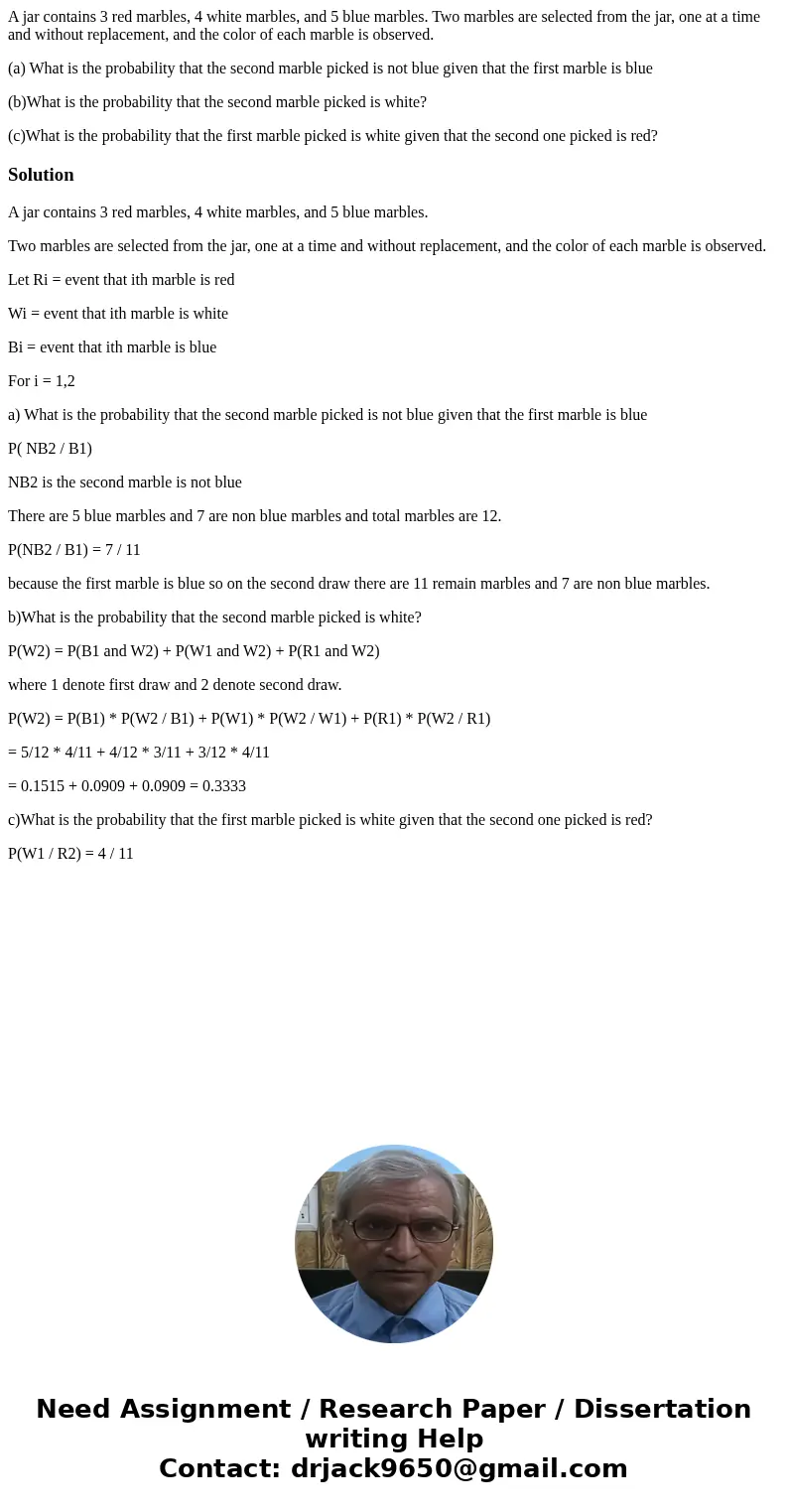A jar contains 3 red marbles 4 white marbles and 5 blue marb
A jar contains 3 red marbles, 4 white marbles, and 5 blue marbles. Two marbles are selected from the jar, one at a time and without replacement, and the color of each marble is observed.
(a) What is the probability that the second marble picked is not blue given that the first marble is blue
(b)What is the probability that the second marble picked is white?
(c)What is the probability that the first marble picked is white given that the second one picked is red?
Solution
A jar contains 3 red marbles, 4 white marbles, and 5 blue marbles.
Two marbles are selected from the jar, one at a time and without replacement, and the color of each marble is observed.
Let Ri = event that ith marble is red
Wi = event that ith marble is white
Bi = event that ith marble is blue
For i = 1,2
a) What is the probability that the second marble picked is not blue given that the first marble is blue
P( NB2 / B1)
NB2 is the second marble is not blue
There are 5 blue marbles and 7 are non blue marbles and total marbles are 12.
P(NB2 / B1) = 7 / 11
because the first marble is blue so on the second draw there are 11 remain marbles and 7 are non blue marbles.
b)What is the probability that the second marble picked is white?
P(W2) = P(B1 and W2) + P(W1 and W2) + P(R1 and W2)
where 1 denote first draw and 2 denote second draw.
P(W2) = P(B1) * P(W2 / B1) + P(W1) * P(W2 / W1) + P(R1) * P(W2 / R1)
= 5/12 * 4/11 + 4/12 * 3/11 + 3/12 * 4/11
= 0.1515 + 0.0909 + 0.0909 = 0.3333
c)What is the probability that the first marble picked is white given that the second one picked is red?
P(W1 / R2) = 4 / 11

 Homework Sourse
Homework Sourse